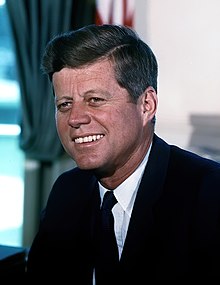📖 Presidential Profile
Comprehensive overview of leadership, policies, and historical significance
📋 Biography & Political Journey
The Youngest Elected President
John Fitzgerald Kennedy brought youth, charisma, and intellectual vigor to the presidency at age 43, making him the **youngest elected president** in American history. His Harvard education, war heroism in the Pacific, and political dynasty background positioned him as a symbol of American promise and renewal. Kennedy’s inaugural address, with its famous call to **”ask not what your country can do for you”**, captured the optimistic spirit of the early 1960s and inspired a generation of Americans to public service.
The New Frontier and Space Race
Kennedy’s domestic agenda, known as the **New Frontier**, aimed to tackle poverty, civil rights, and economic stagnation. While Congress blocked many of his proposals, Kennedy successfully launched the **Peace Corps** and committed America to landing on the moon before 1970. His bold declaration that America would go to the moon “not because it is easy, but because it is hard” galvanized the nation’s scientific and technological capabilities during the height of the Cold War space competition with the Soviet Union.
Cold War Leadership and Crisis Management
Kennedy’s presidency was defined by Cold War confrontations that brought the world to the brink of nuclear war. The **Cuban Missile Crisis** of October 1962 represented the closest the world has come to nuclear conflict, and Kennedy’s careful diplomacy helped defuse the situation. His establishment of the **Berlin Wall** response and support for West Berlin demonstrated American commitment to European allies, while his nuclear test ban treaty with the Soviet Union marked an early step toward détente.
Civil Rights and Political Calculations
Kennedy’s approach to civil rights was initially cautious, as he feared alienating Southern Democrats crucial to his legislative agenda. He was slow to support the **Freedom Riders** and initially tried to persuade civil rights leaders to focus on voting rights rather than desegregation. However, the violence in Birmingham and other Southern cities eventually forced Kennedy to take a stronger public stance. His decision to federalize the Alabama National Guard to enforce university integration and his June 1963 civil rights address marked a turning point, though critics argue he could have acted sooner and more decisively.
The Rocking Chair President
Kennedy suffered from chronic back pain due to his war injuries and Addison’s disease, leading him to use a **special rocking chair** in the Oval Office for relief. The chair became so associated with his presidency that when he traveled, **Secret Service agents would often transport his rocking chair** to his destinations. During the 1960 presidential debates with Nixon, Kennedy had to stand at a special podium that allowed him to lean slightly, and he wore a back brace so tight that after his assassination, it may have prevented him from ducking down in the car when shots were fired.
Humor & Jokes
JFK's Boston Accent
Why did John F. Kennedy sound so distinctive? Because when you're from Boston, even your…
Read More →Greatest Wins
✊ Support for the Civil Rights Movement
Kennedy's evolving moral leadership on civil rights laid crucial groundwork for landmark legislation, advancing America…
Read More →Epic Fails
🏖️ Bay of Pigs Invasion
Kennedy's covert attempt to overthrow Castro's Cuba ended in catastrophic failure, embarrassing America and strengthening…
Read More →